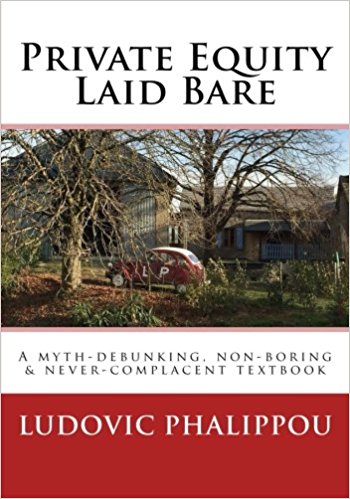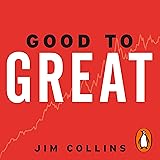Once upon a time, the Dutch, who had developed many of the techniques of modern finance (that is no less than: the stock-market, the futures market, open ended mutual funds, closed ended mutual funds… — they just did not invent the first stock because that’s Toulouse in 1372), created a market for tulip bulbs. Why did they? Because in 1634, many people wanted to buy tulip bulbs and, in particular, the French. In academic finance we call these people ‘noise traders’ (in plain language: crazy guys who will pay anything for anything). So, the Dutch, being very practical, created a tulip market. Well, they did better than that. Buying and selling bulbs is not practical, so what was sold was a piece of paper that said whoever holds that certified piece of paper in a year or so will receive bulbs — it is a futures market. So the Dutch had just invented commodity futures.
People loved it. Each piece of paper began changing hands at increasing frequency many times a day. Note that the Dutch had banned short selling a few years back (in 1610). And when I say ban, I mean it Dutch-style (no hand-cutting or other violence, no jail or other costly law enforcement, they just take all the money): Short sellers were not prosecuted, contracts were simply deemed unenforceable, so traders facing a loss did not have to pay the short seller, which in turn deterred the short seller quite well. So, you could not sell short the bulbs if you thought price was crazy, you could only buy the piece of paper.
Another classic feature, in passing: at first it is only rare bulbs whose prices went stratospheric, but then it was the more common ones and then even the broken ones. A similar phenomena would be observed on other markets in the centuries to come: first high grade bonds go up and lots of them are issued, then the more risky ones, and then come the junk bonds, and usually a bang ensues.
Ah, and, no bulb was ever delivered because the piece of paper was deemed worthless at some point, so, whoever was holding it, binned it and walked home, or jumped into a canal.
Fast forward a few years, the Dutch are cycling about, experimenting with pindakaas (peanut butter; I like the one with Dadel&Kaneel, just saying), whereas Americans, the new masters, are pushing some frontiers: a banana taped to a wall? Sold for $120,000. Why not? Was a unique (ish) piece. Why would intrinsic value be relevant?
But once you get rid off the assumption that intrinsic value matters, new frontiers appear.
An important note here: It is sometimes argued that the money we use also has no intrinsic value and yet … The key point is that people who have stock of money usually have to give a significant fraction of it to the state and the state accepts cash, which is why the Euro/Dollar/Others have intrinsic value. I cannot pay taxes with Pokemon cards, or Panini card, even the Panini card of Zinedine Zidane would not work!
Talking of which, how about crypto-currencies? Each piece is unique and in fixed quantity, like the taped banana and dollar notes (new monetary policy is testing the notion that the quantity of dollar notes floating around are in fixed quantities though). The uniqueness of cryptos (sounds a lot cooler if called this way, and cool is gold) is what distinguishes them from monopoly game notes. These cryptos change hands (well, e-accounts) for lots of cash (real one). It is no different than Pokemon cards and other things that are certified & in fixed quantity. At some point some people start trading them, price goes up on anticipation that some noise traders will join in, and then one day people say, well, maybe this is not cool anymore and bang, back to intrinsic value — this is basically the law of economic gravity. In the case of cryptos, intrinsic value is, let me check my notes, yes, zero. A bit less than tulip bulbs (cos’ at least the bulbs give you flowers).
But then, Americans thought: We are having so much fun, how about bringing this to the next level and have any Ludo (they usually say Karen though, but I am trying to start a new trend) saying something like: here are Ludo coins, there are 1000 of them you can have them for $9.99 a piece, you are welcome. Ludo coins are unique, traceable (on a Blockchain), that’s it, like Pokemon cards you can sell them to someone else who fancies having a Ludo coin.
And some youngsters actually did this, using the name of some company they created (always cool names, though). Quite a few of them, for quite some money, for a while. For example, Filecoin and Tezos have raised for than $200mn each (that’s real $$ again). The latter, Tezos, is a great love story too: Arthur and Kathleen Breitman. He proposed in Paris, she said yes, and together they would have a big ICO, in July 2017, before they even reached 30 years of age, then came some lawsuits (real ones), they settled…
ICOs seem to have stop though, I guess it was not cool anymore. Btw. names means Initial Coin Offerings (ICOs). ICO in Dutch means Idiots — I thought I mention.
But then the next step was simply to do this with anything. Like a Tweet you like (Jack Dorsey’s first tweet was sold for $2,915,835.47; $3mn would have been too much). How? Well, you write a certificate: ‘I, Ludo, hereby certificate that Tweet, Yours sincerely.’ Anyone can do this, you just need a computer and type on the keyboard, and you post this certificate on a blockchain (that part is a bit more complex but not the end of the world). At that point, you just created a Pokemon card basically, you just cannot hold it. Just like you cannot hug Zinedine Zidane even if you have his Panini card (why no-one told me this ?!). It is registered forever and ever, can change hands thereby delivering (real) cash to the seller. Again, it is tracked (well, the internet should not crash, you should not lose your hard drive with passwords etc.).
You can do this with anything. For example, I could say that I own the letter A, I write a certificate for the letter A, I write it on the blockchain and anyone can pay me to buy the certificate for the letter A. To be clear you will not earn any royalties each time someone type the letter A if you buy my certificate, I just wrote this certificate and you bought it, that’s it. I can sell you all the letters of the alphabet if you are interested and in fact I could extend my offer to all the letters of all the alphabets for $9.99. Anyone?
Oh and I forgot, for stuff like this to work you need to find cool names: ICO is a cool name (except in Dutch), sounds like IPO, which is a very serious name indeed. NFT — non fungible token — certainly sounds a lot better than BPWBSUTAWTWHLATM*
*Bannana People Will Be Sticking Up Their A When They Will Have Lost All Their Money.
Meanwhile, enjoy the trading — oh, and there is no short selling of NFTs/ICOs possible, there is therefore only one direction and it is UP and UP and UP, or is there? If history is any guide…
Yours,
The inventor of the uncertified certified alphabet
You may also like this excellent book by Prof Will Goetzmann — it is as affordable as it is insightful and educational
Actually cannot resist to paste the comments about Will’s book, which are spot on:
“Only William Goetzmann–an archaeologist, art historian, and esteemed finance scholar–could have produced this masterful exploration of money and investing through the ages. Money Changes Everything is at once deep, broad, sweeping, and gorgeously illustrated. It is a book that readers will savor and refer to again and again.”–William Bernstein, author of A Splendid Exchange: How Trade Shaped the World
“Money is the greatest invention since the wheel. In this masterwork, Money Changes Everything, William Goetzmann traces money’s role from prehistoric times to the present, showing how civilizations developed on a bedrock of financial transactions. A beautifully written and compelling book.”–Elroy Dimson, University of Cambridge and London Business School
“In Money Changes Everything, readers learn a tremendous amount about the core ideas of finance. William Goetzmann uses a vast range of historical examples to explain why the evolution of finance and civilization are inseparable.”–Robert J. Shiller, Nobel Laureate in Economics
“In this engaging book, William Goetzmann, a modern Renaissance man, demonstrates that throughout recorded history, the power of financial technologies has improved human existence. Like other technologies, financial innovations can sometimes be disruptive. Goetzmann, however, shows us that much of the time, these innovations propel economic progress and expand individual opportunities.”–Richard Sylla, Stern School of Business, New York University
“If anyone had told me that someone could write coherently and intelligently about Karl Marx, cuneiform tablets, the South Sea bubble, the opium trade, and David’s painting Death of Marat between a single set of covers, I would have shaken my head in disbelief. This book accomplishes precisely this. Money Changes Everything does nothing less than to think through the contribution of finance to modern civilization. A thrilling read.”–Hans-Joachim Voth, University of Zurich
And, yes, there are other books on Amazon:





